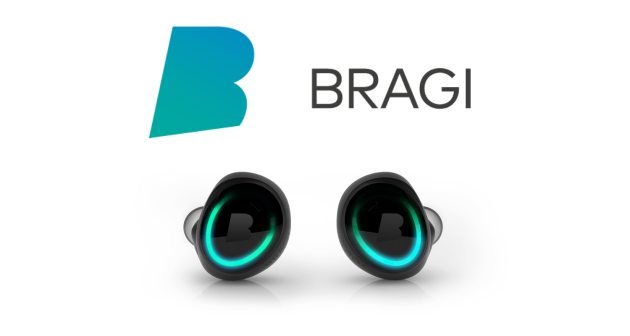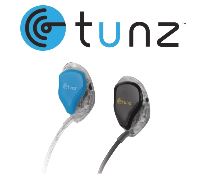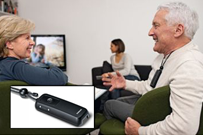Assistive Listening Devices (ALDs)
Assistive Listening Devices are designed to help connect listeners to a specific sound source. These can be used in conjunction with hearing aids, cochlear implants or independently. ALD’s are commonly used with televisions, radios, and telephones. They can even be used to listen to public speakers. When appropriately used, ALDs can improve the quality of sound in many situations.
ALDs are not only used for the hearing impaired; they can also help people without hearing difficulties in many difficult listening environments such as classrooms or places of worship. We are proud to offer both the Bragi and Tunz ALD’s.


DID YOU KNOW?
 Not only can you get Assistive Listening Devices for your phone or television to hear better, but there are systems out there to alert you too when the doorbell rings, your phone rings, your alarm clock goes off and even when the smoke alarm is sounding! These devices are not only sold to help us to hear better in certain situations, but to keep us safe from harm as well!
Not only can you get Assistive Listening Devices for your phone or television to hear better, but there are systems out there to alert you too when the doorbell rings, your phone rings, your alarm clock goes off and even when the smoke alarm is sounding! These devices are not only sold to help us to hear better in certain situations, but to keep us safe from harm as well!
Happy Patients
Hear Well. Live Well.

“My life is changed forever with my new Phonak Paradise hearing aids. I’m so proud and thankful that I tell everyone I meet how wonderful it is to hear paper rustling and my own footsteps on the floor again. It is a miracle and a blessing. Thank you Adam Dipuccio and doctors at AHG for my new life!!!”

“We want to thank Dr. Johnson and the staff at the South Scottsdale office for their prompt service. When I had a problem with one of my hearing aids, they saw me within an hour of my call to their office, and resolved the problem in a few minutes. We appreciate a business that is so helpful and caring.”

“Dr. Johnson did a wonderful job evaluating what would work for me. He is very pleasant, listens to the needs of the patient, answers all questions, and makes you feel very comfortable. I have been helped with hearing aids for both my tinnitus and hearing loss. Don’t hesitate to go see Dr. Johnson if you are in need… He is the best in the business!”

“I had a hearing aid quit on me. I went into the Mesa location and was greeted by a pleasant young lady and was promptly helped to get my hearing aid working again. And there was no charge !! Great service and pleasant staff. What a great experience !!”

“I have been using AHG for several years and they have been just great to work with. I get the hearing devices I need and they are well taken care of by AHG while I own them. Gary is a great audiologist and the receptionist is always helpful, friendly and available. Try them, you’ll like them.”

“We do not know how to thank you for the amazing professionalism and compassion you demonstrated to our family recently in addressing the hearing loss of my wife. Your kindness far exceeded your obligation as an Audiologist to provide competent professional care and we are very grateful. We were so fortunate to find you.”
Will health insurance cover my hearing aids?
What about ear wax removal?
Insurance covers many hearing & audiology services.
Health insurance companies cover a variety of hearing aids. Since there are often specific requirements, and/or limitations on what or how much is covered, it is important to thoroughly understand what your health plan offers. It is our goal to find the type of hearing aid that is most suitable for your hearing loss. We will also help you understand your treatment options as they relate to your health insurance coverage.
Most insurance typically covers the cost of earwax removal services, with the patient paying only their standard policy deductible. However, the cost of earwax removal is not as expensive as you might think - without going through insurance, the cost of a standard earwax removal is $95.00 for either one ear or two.
We proudly contract with the insurance companies listed below. Our list is constantly growing, so check back often to see if your company is included. Alternatively, you can call us for assistance with your plan’s coverage, or to see if we contract with your insurance.
AARP / AARP Medicare Complete / Banner
ACN Connected Care
Aetna / ALL plans/ Banner
Alaska Care
Arizona Care Network (ACN)
Arizona Complete Health (AHCCCS)
Allwell Commercial / AHCCCS
Ambetter
Ameriben
American Postal Workers Union (APWU)
Arizona Health Care Cost Containment (AHCCCS)
Arizona Medical Network (AMN)
AZ Complete Health Care
Banner Health Network PPO,HMO, Medicare
Banner Medicare Advantage Dual (SNP)
Banner University LTC (AHCCCS)
Banner University Family Care (AHCCCS)
Beech Street
Blue Cross Blue Shield / All Plans / Banner
Cigna / All Plans / Banner
CMDP (AHCCCS)
Cofinity
Core Civic
Coventry
First Health
Fortified Provider Network (HMN)
GEHA
Gilsbar
Golden Rule
Great West Health
Health Choice (AHCCCS)
Health Choice Pathway (SNP)
Health Management Network (HMN)
Healthnet (All Plans)
Health Smart
Humana / All Plans / Banner
ICE Health Services (IHS)
Imperial Insurance
Mail Handlers Benefit Plan (MHBP)
Medicare Part B
Medicare Railroad
Magellan Complete Care
Meritus
Mercy Care Advantage (SNP)
Mercy Care Plan (AHCCCS)
Mercy Care Group Health
Mercy Care RBHA
Mercy Maricopa Integrated
Molina Care (AHCCCS)
Molina Medicare Complete Care
Multiplan/RAN
Oscar Healthcare (Cigna only)
OWCP (Workers Comp.)
Refugee Medical Asst. Program (RMAP)
Southwest Services Administrators
Tricare West Region / HNFS
Triwest / VA Community Care
United Food and Commercial Workers (UFCW)
UHC AARP Medicare Complete ( Banner)
UHC Dual Complete (SNP)
UHC Community Plan (AHCCCS)
UMR
United Mine Workers Union (UMWU)
United Healthcare / All Plans / Banner
Wellcare
Washington State Labor of Industry
